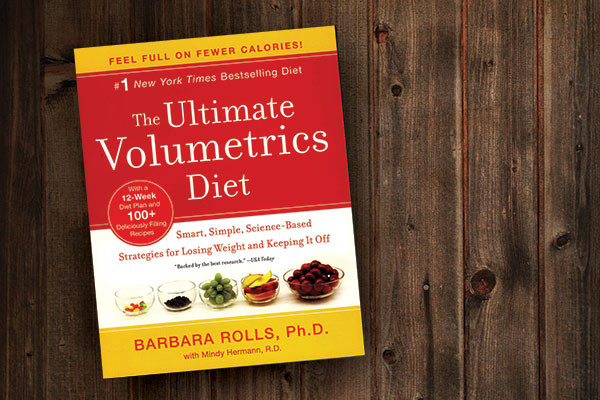Celebrated as one of the top programmes for weight loss in the US News & World Report’s 2017 Best Diet rankings, the Volumetrics Weight Control Plan is proof that losing weight does not mean going hungry, according to its creator Professor Barbara Rolls.
The Volumetrics Plan is a long-term approach to weight loss and feeling full on far fewer calories. Unlike most fad diets that are all about mood destroying food deprivation, Volumetrics is a science-based strategy focused on the power of feeling full and managing your hunger using high volume and low calorie foods, such as soup and vegetables.
Rolls tests how different food properties, such as water content and calorie density, affect how much people eat. Rolls has researched and written over 200 academic papers, and her lab includes a large research kitchen and dining area. Her studies have led to a better understanding of the importance of allowing people to feel fuller both physically and psychologically using foods like soup – which have a high water content and low calorie density.
With almost a third of people failing to stick to a diet because they never felt full (30.8%) and persistent hunger pangs causing even those with the strongest willpower to break, the Volumetrics’ diet uses ‘satiety’ as a key ingredient in weight management.
Here to deliver her four quick tips for feeling full and losing weight is Barbara Rolls – and drinking extra water is not on her list!
Professor Barbara Rolls, who advises how to be far more successful in shedding those extra pounds – using the science of feeling full. Professor Rolls – who has written over 200 academic papers on the psychological vs. physical effects of dieting – claims that eating foods like soup will help you to lose weight, in accordance with her Volumetrics diet plan.
Barbara Rolls has spent her career studying eating behaviour and weight management. As professor of nutritional sciences at Penn State University, she carries out research funded by the US National Institutes of Health. Barbara’s lab includes a large research kitchen and dining area testing how different properties of foods affect how much people eat. Barbara’s studies have led to a better understanding of which foods can help curb hunger without adding extra calories focusing on foods, such as soup, which have a high water content and low calorie density which make people feel full – both physically and psychologically.
Barbara has a very long and eminent history in the study of human ingestive behaviour. She is the author of more than 250 research articles and six books and has had previous roles as president of both the Society for the Study of Ingestive Behaviour and the Obesity Society in the US.
